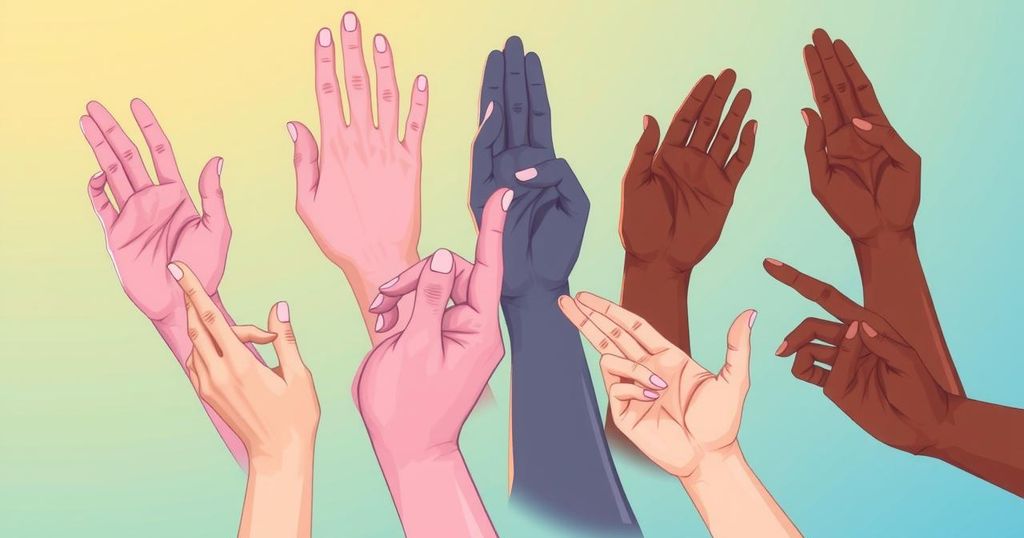Namibia’s deaf community is pressing for the recognition of sign language as a national language to improve inclusiveness. NNAD Director Linekela Nanyeni and Deputy Minister Alexia Manombe-Ncube highlight that this recognition is vital for equal rights and communication access. The parliamentary committee has supported this motion, reaffirming Namibia’s commitment under international conventions on the rights of persons with disabilities.
Namibia’s deaf community is advocating for the recognition of sign language as a national language to enhance inclusivity. Linekela Nanyeni, director of the Namibian National Association of the Deaf (NNAD), emphasizes this recognition is essential to mitigate societal inequality. He expressed hope that the parliamentary standing committee on constitutional and legal affairs would support this motion, marking a significant achievement for both the Namibian and global deaf communities.
Nanyeni noted, “We share a common culture and language, and having Namibian sign language recognised means the deaf will gain.” He urged the new government to prioritize this initiative for an inclusive, responsive, and people-centered approach. The committee has already reported on the need for sign language acknowledgment and the inclusion of a sign language interpreter in parliamentary debates.
Committee Chairperson Kletus Karondo confirmed that the National Assembly has incorporated sign language in its official languages. This decision aligns with Namibia’s commitment to the United Nations Convention on the Rights of Persons with Disabilities, which affirms communication as a human right. Karondo stated, “The National Assembly in its new rules inserted sign language as part of the languages in the house.”
The motion was initiated by Deputy Minister for Disability Affairs, Alexia Manombe-Ncube, in 2022 following a petition from NNAD representatives. She asserted the value of sign language, highlighting the need for families, especially those with deaf children, to learn it. Additionally, Manombe-Ncube called for resources to teach sign language effectively at early childhood development centers, ensuring children have access to essential communication skills across various sectors.
In conclusion, the push for recognizing sign language as a national language in Namibia is a pivotal step toward fostering inclusivity. The advocacy from the deaf community and support from governmental committees highlights the urgent need for this recognition to ensure equal rights and communication access for deaf individuals. Establishing supportive programs and resources for learning sign language is essential for bridging communication gaps in society.
Original Source: www.namibian.com.na






